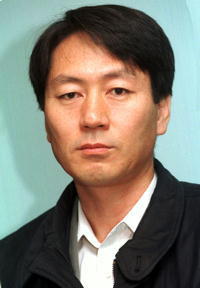 |
Never since Gojoseon (Kojoson, founded in 2333 B.C.) have the Korean people seen their living habitat shrunk to the size it is today. In the North, they are in isolation and dying from starvation, and in the South, we have completely lost all physical connection to the continent and are playing the role of military base for a foreign power while being hostile towards members of our own people. This division and confrontation constantly eats away at the energy of the Korean people, and it is a vicious cycle that creates a power vacuum, relative to the neighboring powers that profit from the situation by meddling in the wake of this vacuum. To ask those who created this situation to save us from it is defeatism at its worst. An article titled "The Emerging Russian Giant: The U.S., Eurasia and Global Geopolitics" by William Engdahl in last month’s Japan Focus shows you how overly obsessed the U.S. is with securing absolute nuclear superiority over its rivals. The way it is pursuing missile defense (MD) and trying to militarize space, expanding NATO, continuing intervention in the Middle East with things like the invasion of Iraq, and pushing a more substantial U.S.-Japan alliance are all things that can be seen in the same context. According to Engdahl, if World War III breaks out, it will be because of the U.S.’s aggressive pursuit of hegemony toward China and Russia. Russia has the world’s largest territory and it has the most oil, so it is not as if Russia were going to sit back and let things happen. Together with China and Central Asian countries, it already formed the Shanghai Cooperation Organization, which is now trying to recruit India and Iran and even get involved in the North Korean situation. It is a cooperative relationship based on oil and military concerns that could easily be transformed into a united front for challenging U.S. nuclear supremacy. If Pyongyang were able to have diplomatic ties with the Washington, U.S. forces in Korea would find themselves in a situation where they would have to leave the Korean peninsula. The U.S. would have no more reason to stay. Furthermore, it is extremely unlikely in such a situation that South Korea would forever accept U.S. forces that possess "strategic flexibility" at the risk of a confrontation with China. If U.S. forces were to leave the peninsula, U.S. forces in Japan would have to pack their bags, as well. Japanese society and its politicians are not so stupid that they would indefinitely endure the hostile isolation from the rest of Asia that would come with permitting the continued stationing of U.S. troops that have China, North Korea, and Russia as their hypothetical enemy.





